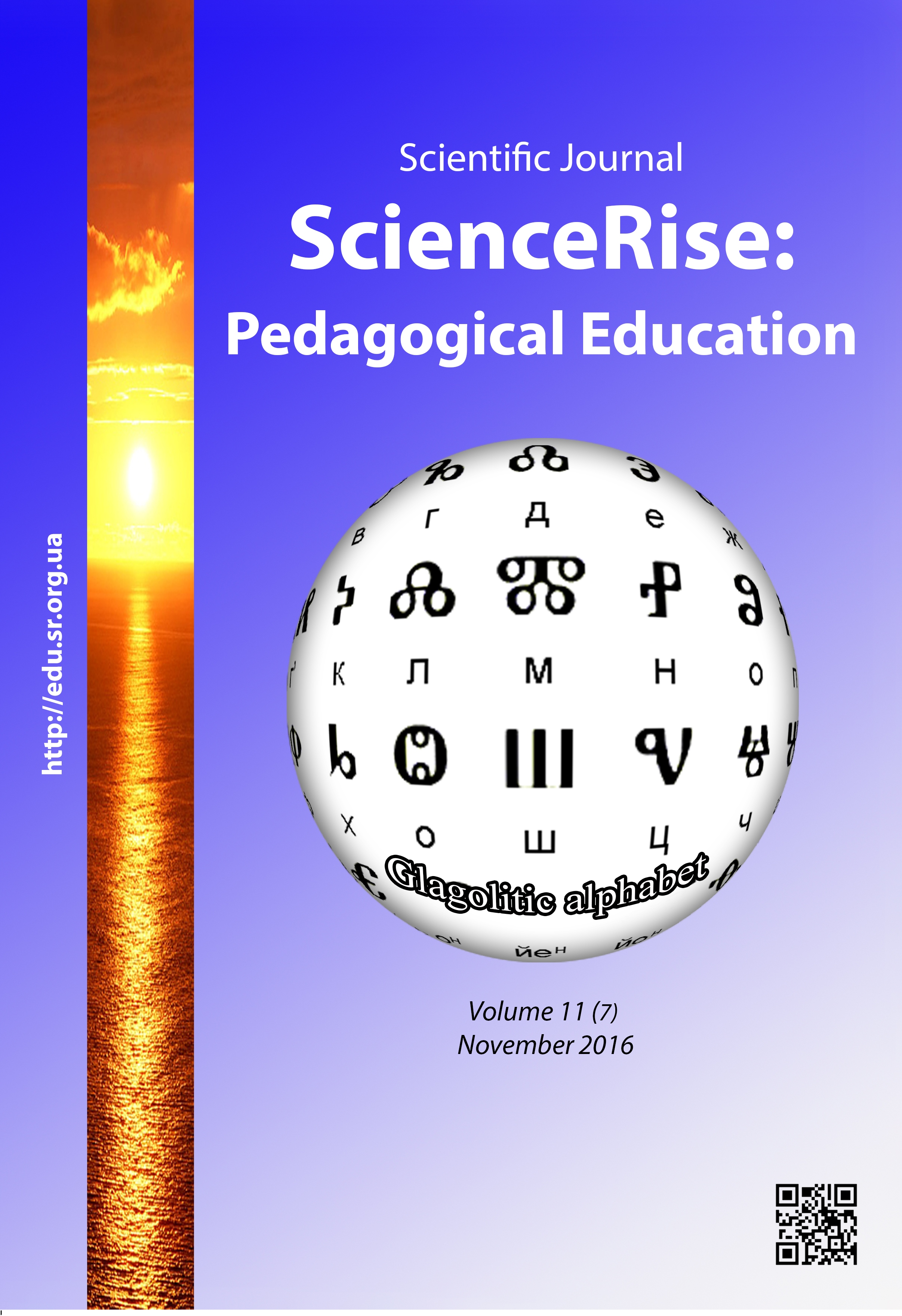The training of future higher school teacher to organize the process of interactive learning
DOI:
https://doi.org/10.15587/2519-4984.2016.84686Keywords:
future teacher, interactive learning, computer technologies, master, modernizationAbstract
The article is devoted to the problem of professional training of future higher school teacher under MA conditions. The possibilities of interactive learning in the process of organization of independent work of MA students were considered. The one of modern directions of the development of active learning is interactive learning. Interactive learning is directed on the active and deep mastering of studied material, development of ability to solve the complex problems. Independent work of future teacher is the specific form of educational activity, directed on the personal self-development and professional self-improvement. The important factor that influences the success of independent work of the future teachers is the formation of stable interest to the profession, to the methods of mastering its specificity.
It is underlined, that the feature of interactive learning in training of future teachers is continuous active learning, cooperation and creative interaction between all participants of educational processReferences
- Ul'janova, L. I. (2015). Samosovershenstvovanie studenta – zalog uspeshnoj tvorcheskoj professional'noj dejatel'nosti v budushhem. Problemy i perspektivy razvitija obrazovanija. Perm': Merkurij, 242–245.
- Aktivnye i interaktivnye obrazovatel'nye tehnologii (formy provedenija zanjatij) v vysshej shkole (2013). Nizhny Novgorod: NNGASU, 97.
- Pometun, O., Pyrozhenko, L. (2002). Interaktyvni tehnologii' navchannja: teorija, praktyka, dosvid. Kyiv, 176.
- Divinskaya, N. O. (2011). Model' professional'noj podgotovki uchitelya inostrannogo yazika k vnedreniyu igrovyh form obucheniya: monografiya. Kyiv, 208.
- Rybcova, L. L.; Rybcova, L. L. (Ed.) (2014). Sovremennye obrazovatel'nye tehnologii. Ekaterinburg, 92.
- Jasvin, V. A. (2001). Obrazovatel'naja sreda: ot modelirovanija k proektirovaniju. Moscow: Smysl, 366.
- Zeus, P., Skiffington, S. (2007). The Complete Guide to Coaching at Work. Australia: The McGrow-Hill Companies, Inc., 260.
- Douglas, C. A., Morley, W. H. (2000). Executive Coaching: An Annotated Bibliography. NC: Greensboro, Center for Creative Leadership, 164.
- Pryhodchenko, K. (2011). Formuvannja osobystisnyh jakostej navchajuchyh u tvorchomu osvitn'o-vyhovnomu seredovyshhi navchal'nogo zakladu. Naukova skarbnycja osvity Donechchyny, 1 (8), 42–46.
- Shinkarenko, R. V., Popova, Ju. M. (2013). Innovacionnye tehnologii obuchenija v vysshej shkole. Mezhdunarodnyj zhurnal jeksperimental'nogo obrazovanija, 4, 329–332.
- Nychkalo, N. G. (2015). Profesijnyj rozvytok osobystosti: konceptual'ni zasady i perspektyvy doslidzhen'. Pedagogika i psyhologija, 1 (86), 5–14.
Downloads
Published
How to Cite
Issue
Section
License
Copyright (c) 2016 Владимир Николаевич Кравченко

This work is licensed under a Creative Commons Attribution 4.0 International License.
Our journal abides by the Creative Commons CC BY copyright rights and permissions for open access journals.
Authors, who are published in this journal, agree to the following conditions:
1. The authors reserve the right to authorship of the work and pass the first publication right of this work to the journal under the terms of a Creative Commons CC BY, which allows others to freely distribute the published research with the obligatory reference to the authors of the original work and the first publication of the work in this journal.
2. The authors have the right to conclude separate supplement agreements that relate to non-exclusive work distribution in the form in which it has been published by the journal (for example, to upload the work to the online storage of the journal or publish it as part of a monograph), provided that the reference to the first publication of the work in this journal is included.








